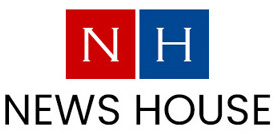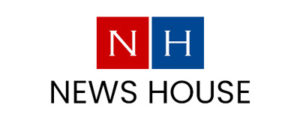
In a resurfaced 2019 interview with CNN, Vice President Kamala Harris made statements about the dangers of "unfettered free speech," sparking fresh controversy as free speech remains a hot-button issue in American politics. At the time of the interview, Harris was running for president and was vocal about the need to regulate speech on social media platforms. Her comments have raised concerns among free speech advocates, many of whom see her stance as reflective of the Biden administration’s broader approach to censorship.
During the interview, Harris expressed that there must be oversight and regulation on platforms like Twitter and Facebook, criticizing the influence that users like then-President Donald Trump had on public discourse. She stated, “That has to stop,” referring to people being able to "speak directly to millions and millions of people without any level of oversight and regulation." Her remarks suggested that social media companies should take more responsibility for the content shared on their platforms, especially when it comes to what she described as "harmful" or "dangerous" speech.
Kamala Harris has, for at least 6 years now, called for the State to forcibly strip your First Amendment right to free speech in the new digital town square – i.e. social media sites.
In 2019, Harris promised to use the DOJ and law enforcement (aka armed agents of the State) to… pic.twitter.com/5xm0EPwD78
— Mrgunsngear (@Mrgunsngear) September 6, 2024
This stance is seen by many as a call for increased government intervention in regulating online platforms, an idea that has sparked debate across the political spectrum. Conservatives, in particular, argue that Harris’s approach would open the door to censorship and a crackdown on dissenting viewpoints, particularly those on the right. Critics have linked her comments to efforts by Democrats to silence opinions they disagree with, particularly in the lead-up to the 2020 election, where issues like the Hunter Biden laptop story were suppressed by platforms like Twitter.
Free speech advocates like law professor Jonathan Turley have strongly criticized Harris’s comments. Turley, who has frequently written about the erosion of free speech under the Biden administration, described her views as reflective of a broader "anti-free speech movement" within the Democratic Party. He argued that Harris's approach would lead to an Orwellian future, where speech is regulated to the point of silencing dissent. Turley noted that figures like Elon Musk and Robert F. Kennedy Jr. have amplified concerns about the Biden administration's approach to free speech, particularly in light of Harris's comments during the 2019 interview.
🚨Kamala said free speech needs oversight and regulation.
She thinks X should be shut down.
This is the talk of an anti-American tyrant! pic.twitter.com/9JO7oYcGxA
— The Adam Theory (@TheAdamTheory1) September 3, 2024
Harris’s critics have also drawn parallels between her stance and the actions of foreign governments that have censored social media platforms. For example, after Musk's acquisition of Twitter (now X), some Democratic leaders praised Brazil’s government for temporarily banning the platform after Musk refused to comply with demands to censor conservative voices. This incident further fueled concerns that Harris’s vision of regulated speech would eventually lead to government control over social media, similar to authoritarian regimes abroad.
While Harris’s supporters argue that her calls for regulation are aimed at curbing hate speech and misinformation, detractors see her proposals as a fundamental threat to free expression. They point to the fact that during her tenure as California’s Attorney General, Harris supported policies that many believed overstepped in their enforcement, such as her efforts to prosecute the classified ads website Backpage.com under pimping charges. In their view, Harris’s history of using the legal system to enforce speech limitations only adds to concerns about her current stance on social media regulation.
Harris's comments also come at a time when free speech is a central issue in the political discourse, particularly with the 2024 election approaching. Conservative leaders have emphasized the importance of protecting the First Amendment, framing the current debates over censorship and speech regulation as one of the most pressing issues facing the nation. As these discussions unfold, Harris’s 2019 interview has become a focal point for critics who believe her views signal a broader trend of governmental overreach in regulating speech.
In summary, Kamala Harris’s call for regulating "unfettered free speech" on social media platforms has ignited significant backlash. Her critics argue that such regulation threatens to undermine free expression in the United States, drawing comparisons to authoritarian censorship tactics. As the debate over free speech continues to shape the political landscape, Harris's comments will likely remain a point of contention for those advocating for less governmental control over what is said and shared online.












